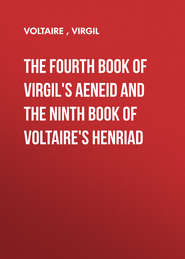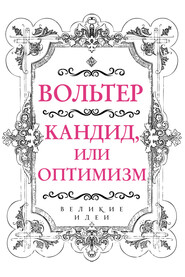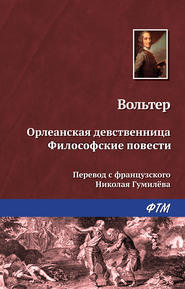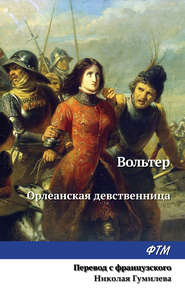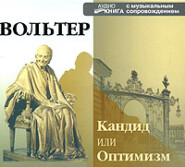По всем вопросам обращайтесь на: info@litportal.ru
(©) 2003-2024.
✖
A Philosophical Dictionary, Volume 02
Настройки чтения
Размер шрифта
Высота строк
Поля
At the commencement of the thirteenth century, the Emperor Alexis, wishing to make himself recognized by the Bulgarians, their king, Joannic, replied, that he would never be his vassal. Pope Innocent III. was careful to seize this opportunity of attaching the kingdom of Bulgaria to himself: he sent a legate to Joannic, to anoint him king; and pretended that he had conferred the kingdom upon him, and that he could never more hold it but from the holy see.
This was the most violent period of the crusades. The indignant Bulgarians entered into an alliance with the Turks, declared war against the pope and his crusaders, took the pretended Emperor Baldwin prisoner, had his head cut off, and made a bowl of his skull, after the manner of Krom. This was quite enough to make the Bulgarians abhorred by all Europe. It was no longer necessary to call them Manichæans, a name which was at that time given to every class of heretics: for Manichæan, Patarin, and Vaudois were the same thing. These terms were lavished upon whosoever would not submit to the Roman church.
BULL
A quadruped, armed with horns, having cloven feet, strong legs, a slow pace, a thick body, a hard skin, a tail not quite so long as that of the horse, with some long hairs at the end. Its blood has been looked upon as a poison, but it is no more so than that of other animals; and the ancients, who wrote that Themistocles and others poisoned themselves with bull's blood, were false both to nature and to history. Lucian, who reproaches Jupiter with having placed the bull's horns above his eyes, reproaches him unjustly; for the eye of a bull being large, round, and open, he sees very well where he strikes; and if his eyes had been placed higher than his horns, he could not have seen the grass which he crops.
Phalaris's bull, or the Brazen Bull, was a bull of cast metal, found in Sicily, and supposed to have been used by Phalaris to enclose and burn such as he chose to punish – a very unlikely species of cruelty. The bulls of Medea guarded the Golden Fleece. The bull of Marathon was tamed by Hercules.
Then there were the bull which carried off Europa, the bull of Mithras, and the bull of Osiris; there are the Bull, a sign of the zodiac, and the Bull's Eye, a star of the first magnitude, and lastly, there are bull-fights, common in Spain.
BULL (PAPAL)
This word designates the bull, or seal of gold, silver, wax, or lead, attached to any instrument or charter. The lead hanging to the rescripts despatched in the Roman court bears on one side the head of St. Peter on the right, and that of St. Paul on the left; and, on the reverse, the name of the reigning pope, with the year of his pontificate. The bull is written on parchment. In the greeting, the pope takes no title but that of "Servant of the Servants of God," according to the holy words of Jesus to His Disciples – "Whosoever will be chief among you, let him be your servant."
Some heretics assert that, by this formula, humble in appearance, the popes mean to express a sort of feudal system, of which God is chief; whose high vassals, Peter and Paul, are represented by their servant the pontiff; while the lesser vassals are all secular princes, whether emperors, kings, or dukes.
They doubtless found this assertion on the famous bull In cœna Domini, which is publicly read at Rome by a cardinal-deacon every year, on Holy Thursday, in the presence of the pope, attended by the rest of the cardinals and bishops. After the ceremony, his holiness casts a lighted torch into the public square in token of anathema.
This bull is, to be found in Tome i., p. 714 of the Bullaire, published at Lyons in 1673, and at page 118 of the edition of 1727. The oldest is dated 1536. Paul III., without noticing the origin of the ceremony, here says that it is an ancient custom of the sovereign pontiffs to publish this excommunication on Holy Thursday, in order to preserve the purity of the Christian religion, and maintain union among the faithful. It contains twenty-four paragraphs, in which the pope excommunicates:
1. Heretics, all who favor them, and all who read their books.
2. Pirates, especially such as dare to cruise on the seas belonging to the sovereign pontiff.
3. Those who impose fresh tolls on their lands.
10. Those who, in any way whatsoever, prevent the execution of the apostolical letters, whether they grant pardons or inflict penalties.
11. All lay judges who judge ecclesiastics, and bring them before their tribunal, whether that tribunal is called an audience, a chancery, a council, or a parliament.
12. All chancellors, counsellors, ordinary or extraordinary, of any king or prince whatsoever, all presidents of chanceries, councils, or parliaments, as also all attorneys-general, who call ecclesiastical causes before them, or prevent the execution of the apostolical letters, even though it be on pretext of preventing some violence.
In the same paragraph, the pope reserves to himself alone the power of absolving the said chancellors, counsellors, attorneys-general, and the rest of the excommunicated; who cannot receive absolution until they have publicly revoked their acts, and have erased them from the records.
20. Lastly, the pope excommunicates all such as shall presume to give absolution to the excommunicated as aforesaid: and, in order that no one may plead ignorance, he orders:
21. That this bull be published, and posted on the gate of the basilic of the Prince of the Apostles, and on that of St. John of Lateran.
22. That all patriarchs, primates, archbishops, and bishops, by virtue of their holy obedience, shall have this bull solemnly published at least once a year.
24. He declares that whosoever dares to go against the provisions of this bull, must know that he is incurring the displeasure of Almighty God and of the blessed apostles Peter and Paul.
The other subsequent bulls, called also In cœna Domini, are only duplicates of the first. For instance, the article 21 of that of Pius V., dated 1567, adds to the paragraph 3 of the one that we have quoted, that all princes who lay new impositions on their states, of what nature soever, or increase the old ones, without obtaining permission from the Holy See, are excommunicated ipso facto. The third bull In cœna Domini of 1610, contains thirty paragraphs, in which Paul V. renews the provisions of the two preceding.
The fourth and last bull In cœna Domini which we find in the Bullaire, is dated April 1, 1672. In it Urban VIII. announces that, after the example of his predecessors, in order inviolably to maintain the integrity of the faith, and public justice and tranquillity, he wields the spiritual sword of ecclesiastical discipline to excommunicate, on the day which is the anniversary of the Supper of our Lord:
1. Heretics.
2. Such as appeal from the pope to a future council; and the rest as in the three former.
It is said that the one which is read now, is of a more recent date, and contains some additions.
The History of Naples, by Giannone, shows us what disorders the ecclesiastics stirred up in that kingdom, and what vexations they exercised against the king's subjects, even refusing them absolution and the sacraments, in order to effect the reception of this bull, which has at last been solemnly proscribed there, as well as in Austrian Lombardy, in the states of the empress-queen, in those of the Duke of Parma, and elsewhere.
In 1580, the French clergy chose the time between the sessions of the parliament of Paris, to have the same bull In cœna Domini published. But it was opposed by the procureur-general; and the Chambre des Vacations, under the presidency of the celebrated and unfortunate Brisson, on October 4, passed a decree, enjoining all governors to inform themselves, if possible, what archbishops, bishops, or grand-vicars, had received either this bull or a copy of it entitled Litteræ processus, and who had sent it to them to be published; to prevent the publication, if it had not yet taken place; to obtain the copies and send them to the chamber; or, if they had been published, to summon the archbishops, the bishops, or their grand-vicars, to appear on a certain day before the chamber, to answer to the suit of the procureur-general; and, in the meantime, to seize their temporal possessions and place them in the hands of the king; to forbid all persons obstructing the execution of this decree, on pain of punishment as traitors and enemies to the state; with orders that the decree be printed and that the copies, collated by notaries, have the full force of the original.
In doing this, the parliament did but feebly imitate Philip the Fair. The bull Ausculta Fili, of Dec. 5, 1301, was addressed to him by Boniface VIII., who, after exhorting the king to listen with docility, says to him: "God has established us over all kings and all kingdoms, to root up, and destroy, and throw down, to build, and to plant, in His name and by His doctrine. Do not, then, suffer yourself to be persuaded that you have no superior, and that you are not subject to the head of the ecclesiastical hierarchy. Whosoever thinks this, is a madman; and whosoever obstinately maintains it, is an infidel, separated from the flock of the Good Shepherd." The pope then enters into long details respecting the government of France, even reproaching the king for having altered the coin.
Philip the Fair had this bull burned at Paris, and its execution published on sound of trumpet throughout the city, by Sunday, Feb. 11, 1302. The pope, in a council which he held at Rome the same year, made a great noise, and broke out into threats against Philip the Fair; but he did no more than threaten. The famous decretal, Unam Sanctam is, however, considered as the work of his council; it is, in substance, as follows:
"We believe and confess a holy, catholic, and apostolic church, out of which there is no salvation; we also acknowledge its unity, that it is one only body, with one only head, and not with two, like a monster. This only head is Jesus Christ, and St. Peter his vicar, and the successor of St. Peter. Therefore, the Greeks, or others, who say that they are not subject to that successor, must acknowledge that they are not of the flock of Christ, since He himself has said (John, x, 16) 'that there is but one fold and one shepherd.'
"We learn that in this church, and under its power, are two swords, the spiritual and the temporal: of these, one is to be used by the church and by the hand of the pontiff; the other, by the church and by the hand of kings and warriors, in pursuance of the orders or with the permission of the pontiff. Now, one of these swords must be subject to the other, temporal to spiritual power; otherwise, they would not be ordinate, and the apostles say they must be so. (Rom. xiii, 1.) According to the testimony of truth, spiritual power must institute and judge temporal power; and thus is verified with regard to the church, the prophecy of Jeremiah (i. 10): 'I have this day set thee over the nations and over the kingdoms.'"
On the other hand, Philip the Fair assembled the states-general; and the commons, in the petition which they presented to that monarch, said, in so many words: "It is a great abomination for us to hear that this Boniface stoutly interprets like a Boulgare (dropping the l and the a) these words of spirituality (Matt., xvi. 19): 'Whatever thou shalt bind on earth, shall be bound in heaven;' if this signified that if a man be put into a temporal prison, God will imprison him in heaven."
Clement V., successor to Boniface VIII., revoked and annulled the odious decision of the bull Unam Sanctam, which extends the power of the popes to the temporalities of kings, and condemns as heretics all who do not acknowledge this chimerical power. Boniface's pretension, indeed, ought to be condemned as heresy, according to this maxim of theologians: "Not only is it a sin against the rules of the faith, and a heresy, to deny what the faith teaches us, but also to set up as part of the faith that which is no part of it." (Joan. Maj. m. 3 sent. dist. 37. q. 26.)
Other popes, before Boniface VIII., had arrogated to themselves the right of property over different kingdoms. The bull is well known, in which Gregory VII. says to the King of Spain: "I would have you to know, that the kingdom of Spain, by ancient ecclesiastical ordinances, was given in property to St. Peter and the holy Roman church."
Henry II. of England asked permission of Pope Adrian IV. to invade Ireland. The pontiff gave him leave, on condition that he imposed on every Irish family a tax of one carolus for the Holy See, and held that kingdom as a fief of the Roman church. "For," wrote Adrian, "it cannot be doubted that every island upon which Jesus Christ, the sun of justice, has arisen, and which has received the lessons of the Christian faith, belongs of right to St. Peter and to the holy and sacred Roman church."
Bulls of the Crusade and of Composition.
If an African or an Asiatic of sense were told that in that part of Europe where some men have forbidden others to eat flesh on Saturdays, the pope gives them leave to eat it, by a bull, for the sum of two rials, and that another bull grants permission to keep stolen money, what would this African or Asiatic say? He would, at least, agree with us, that every country has its customs; and that in this world, by whatever names things may be called, or however they may be disguised, all is done for money.
There are two bulls under the name of La Cruzada – the Crusade; one of the time of Ferdinand and Isabella, the other of that of Philip V. The first of these sells permission to eat what is called the grossura, viz., tripes, livers, kidneys, gizzards, sweet-breads, lights, plucks, cauls, heads, necks, and feet.
The second bull, granted by Pope Urban VIII., gives leave to eat meat throughout Lent, and absolves from every crime except heresy.
Not only are these bulls sold, but people are ordered to buy them; and, as is but right, they cost more in Peru and Mexico than in Spain; they are there sold for a piastre. It is reasonable that the countries which produce gold and silver should pay more than others.
The pretext for these bulls is, making war upon the Moors. There are persons, difficult of conviction, who cannot see what livers and kidneys have to do with a war against the Africans; and they add, that Jesus Christ never ordered war to be made on the Mahometans on pain of excommunication.
The bull giving permission to keep another's goods is galled the bull of Composition. It is farmed; and has long brought considerable sums throughout Spain, the Milanese, Naples, and Sicily. The highest bidders employ the most eloquent of the monks to preach this bull. Sinners who have robbed the king, the state, or private individuals, go to these preachers, confess to them, and show them what a sad thing it would be to make restitution of the whole. They offer the monks five, six, and sometimes seven per cent., in order to keep the rest with a safe conscience; and, as soon as the composition is made, they receive absolution.
The preaching brother who wrote the "Travels through Spain and Italy" (Voyage d'Espagne et d'Italie), published at Paris, avec privilège by Jean-Baptiste de l'Épime, speaking of this bull, thus expresses himself: "Is it not very gracious to come off at so little cost, and be at liberty to steal more, when one has occasion for a larger sum?"
Bull Unigenitus.
The bull In cœna Domini was an indignity offered to all Catholic sovereigns, and they at length proscribed it in their states; but the bull Unigenitus was a trouble to France alone. The former attacked the rights of the princes and magistrates of Europe, and they maintained those rights; the latter proscribed only some maxims of piety and morals, which gave no concern to any except the parties interested in the transient affair; but these interested parties soon filled all France. It was at first a quarrel between the all-powerful Jesuits and the remains of the crushed Port-Royal.
Quesnel, a preacher of the Oratory, refugee in Holland, had dedicated a commentary on the New Testament to Cardinal de Noailles, then bishop of Châlons-sur-Marne. It met the bishop's approbation and was well received by all readers of that sort of books.
One Letellier, a Jesuit, a confessor to Louis XIV. and an enemy to Cardinal de Noailles, resolved to mortify him by having the book, which was dedicated to him, and of which he had a very high opinion, condemned at Rome.
This Jesuit, the son of an attorney at Vire in Lower Normandy, had all that fertility of expedient for which his father's profession is remarkable. Not content with embroiling Cardinal de Noailles with the pope, he determined to have him disgraced by the king his master. To ensure the success of this design, he had mandaments composed against him by his emissaries, and got them signed by four bishops; he also indited letters to the king, which he made them sign.
This was the most violent period of the crusades. The indignant Bulgarians entered into an alliance with the Turks, declared war against the pope and his crusaders, took the pretended Emperor Baldwin prisoner, had his head cut off, and made a bowl of his skull, after the manner of Krom. This was quite enough to make the Bulgarians abhorred by all Europe. It was no longer necessary to call them Manichæans, a name which was at that time given to every class of heretics: for Manichæan, Patarin, and Vaudois were the same thing. These terms were lavished upon whosoever would not submit to the Roman church.
BULL
A quadruped, armed with horns, having cloven feet, strong legs, a slow pace, a thick body, a hard skin, a tail not quite so long as that of the horse, with some long hairs at the end. Its blood has been looked upon as a poison, but it is no more so than that of other animals; and the ancients, who wrote that Themistocles and others poisoned themselves with bull's blood, were false both to nature and to history. Lucian, who reproaches Jupiter with having placed the bull's horns above his eyes, reproaches him unjustly; for the eye of a bull being large, round, and open, he sees very well where he strikes; and if his eyes had been placed higher than his horns, he could not have seen the grass which he crops.
Phalaris's bull, or the Brazen Bull, was a bull of cast metal, found in Sicily, and supposed to have been used by Phalaris to enclose and burn such as he chose to punish – a very unlikely species of cruelty. The bulls of Medea guarded the Golden Fleece. The bull of Marathon was tamed by Hercules.
Then there were the bull which carried off Europa, the bull of Mithras, and the bull of Osiris; there are the Bull, a sign of the zodiac, and the Bull's Eye, a star of the first magnitude, and lastly, there are bull-fights, common in Spain.
BULL (PAPAL)
This word designates the bull, or seal of gold, silver, wax, or lead, attached to any instrument or charter. The lead hanging to the rescripts despatched in the Roman court bears on one side the head of St. Peter on the right, and that of St. Paul on the left; and, on the reverse, the name of the reigning pope, with the year of his pontificate. The bull is written on parchment. In the greeting, the pope takes no title but that of "Servant of the Servants of God," according to the holy words of Jesus to His Disciples – "Whosoever will be chief among you, let him be your servant."
Some heretics assert that, by this formula, humble in appearance, the popes mean to express a sort of feudal system, of which God is chief; whose high vassals, Peter and Paul, are represented by their servant the pontiff; while the lesser vassals are all secular princes, whether emperors, kings, or dukes.
They doubtless found this assertion on the famous bull In cœna Domini, which is publicly read at Rome by a cardinal-deacon every year, on Holy Thursday, in the presence of the pope, attended by the rest of the cardinals and bishops. After the ceremony, his holiness casts a lighted torch into the public square in token of anathema.
This bull is, to be found in Tome i., p. 714 of the Bullaire, published at Lyons in 1673, and at page 118 of the edition of 1727. The oldest is dated 1536. Paul III., without noticing the origin of the ceremony, here says that it is an ancient custom of the sovereign pontiffs to publish this excommunication on Holy Thursday, in order to preserve the purity of the Christian religion, and maintain union among the faithful. It contains twenty-four paragraphs, in which the pope excommunicates:
1. Heretics, all who favor them, and all who read their books.
2. Pirates, especially such as dare to cruise on the seas belonging to the sovereign pontiff.
3. Those who impose fresh tolls on their lands.
10. Those who, in any way whatsoever, prevent the execution of the apostolical letters, whether they grant pardons or inflict penalties.
11. All lay judges who judge ecclesiastics, and bring them before their tribunal, whether that tribunal is called an audience, a chancery, a council, or a parliament.
12. All chancellors, counsellors, ordinary or extraordinary, of any king or prince whatsoever, all presidents of chanceries, councils, or parliaments, as also all attorneys-general, who call ecclesiastical causes before them, or prevent the execution of the apostolical letters, even though it be on pretext of preventing some violence.
In the same paragraph, the pope reserves to himself alone the power of absolving the said chancellors, counsellors, attorneys-general, and the rest of the excommunicated; who cannot receive absolution until they have publicly revoked their acts, and have erased them from the records.
20. Lastly, the pope excommunicates all such as shall presume to give absolution to the excommunicated as aforesaid: and, in order that no one may plead ignorance, he orders:
21. That this bull be published, and posted on the gate of the basilic of the Prince of the Apostles, and on that of St. John of Lateran.
22. That all patriarchs, primates, archbishops, and bishops, by virtue of their holy obedience, shall have this bull solemnly published at least once a year.
24. He declares that whosoever dares to go against the provisions of this bull, must know that he is incurring the displeasure of Almighty God and of the blessed apostles Peter and Paul.
The other subsequent bulls, called also In cœna Domini, are only duplicates of the first. For instance, the article 21 of that of Pius V., dated 1567, adds to the paragraph 3 of the one that we have quoted, that all princes who lay new impositions on their states, of what nature soever, or increase the old ones, without obtaining permission from the Holy See, are excommunicated ipso facto. The third bull In cœna Domini of 1610, contains thirty paragraphs, in which Paul V. renews the provisions of the two preceding.
The fourth and last bull In cœna Domini which we find in the Bullaire, is dated April 1, 1672. In it Urban VIII. announces that, after the example of his predecessors, in order inviolably to maintain the integrity of the faith, and public justice and tranquillity, he wields the spiritual sword of ecclesiastical discipline to excommunicate, on the day which is the anniversary of the Supper of our Lord:
1. Heretics.
2. Such as appeal from the pope to a future council; and the rest as in the three former.
It is said that the one which is read now, is of a more recent date, and contains some additions.
The History of Naples, by Giannone, shows us what disorders the ecclesiastics stirred up in that kingdom, and what vexations they exercised against the king's subjects, even refusing them absolution and the sacraments, in order to effect the reception of this bull, which has at last been solemnly proscribed there, as well as in Austrian Lombardy, in the states of the empress-queen, in those of the Duke of Parma, and elsewhere.
In 1580, the French clergy chose the time between the sessions of the parliament of Paris, to have the same bull In cœna Domini published. But it was opposed by the procureur-general; and the Chambre des Vacations, under the presidency of the celebrated and unfortunate Brisson, on October 4, passed a decree, enjoining all governors to inform themselves, if possible, what archbishops, bishops, or grand-vicars, had received either this bull or a copy of it entitled Litteræ processus, and who had sent it to them to be published; to prevent the publication, if it had not yet taken place; to obtain the copies and send them to the chamber; or, if they had been published, to summon the archbishops, the bishops, or their grand-vicars, to appear on a certain day before the chamber, to answer to the suit of the procureur-general; and, in the meantime, to seize their temporal possessions and place them in the hands of the king; to forbid all persons obstructing the execution of this decree, on pain of punishment as traitors and enemies to the state; with orders that the decree be printed and that the copies, collated by notaries, have the full force of the original.
In doing this, the parliament did but feebly imitate Philip the Fair. The bull Ausculta Fili, of Dec. 5, 1301, was addressed to him by Boniface VIII., who, after exhorting the king to listen with docility, says to him: "God has established us over all kings and all kingdoms, to root up, and destroy, and throw down, to build, and to plant, in His name and by His doctrine. Do not, then, suffer yourself to be persuaded that you have no superior, and that you are not subject to the head of the ecclesiastical hierarchy. Whosoever thinks this, is a madman; and whosoever obstinately maintains it, is an infidel, separated from the flock of the Good Shepherd." The pope then enters into long details respecting the government of France, even reproaching the king for having altered the coin.
Philip the Fair had this bull burned at Paris, and its execution published on sound of trumpet throughout the city, by Sunday, Feb. 11, 1302. The pope, in a council which he held at Rome the same year, made a great noise, and broke out into threats against Philip the Fair; but he did no more than threaten. The famous decretal, Unam Sanctam is, however, considered as the work of his council; it is, in substance, as follows:
"We believe and confess a holy, catholic, and apostolic church, out of which there is no salvation; we also acknowledge its unity, that it is one only body, with one only head, and not with two, like a monster. This only head is Jesus Christ, and St. Peter his vicar, and the successor of St. Peter. Therefore, the Greeks, or others, who say that they are not subject to that successor, must acknowledge that they are not of the flock of Christ, since He himself has said (John, x, 16) 'that there is but one fold and one shepherd.'
"We learn that in this church, and under its power, are two swords, the spiritual and the temporal: of these, one is to be used by the church and by the hand of the pontiff; the other, by the church and by the hand of kings and warriors, in pursuance of the orders or with the permission of the pontiff. Now, one of these swords must be subject to the other, temporal to spiritual power; otherwise, they would not be ordinate, and the apostles say they must be so. (Rom. xiii, 1.) According to the testimony of truth, spiritual power must institute and judge temporal power; and thus is verified with regard to the church, the prophecy of Jeremiah (i. 10): 'I have this day set thee over the nations and over the kingdoms.'"
On the other hand, Philip the Fair assembled the states-general; and the commons, in the petition which they presented to that monarch, said, in so many words: "It is a great abomination for us to hear that this Boniface stoutly interprets like a Boulgare (dropping the l and the a) these words of spirituality (Matt., xvi. 19): 'Whatever thou shalt bind on earth, shall be bound in heaven;' if this signified that if a man be put into a temporal prison, God will imprison him in heaven."
Clement V., successor to Boniface VIII., revoked and annulled the odious decision of the bull Unam Sanctam, which extends the power of the popes to the temporalities of kings, and condemns as heretics all who do not acknowledge this chimerical power. Boniface's pretension, indeed, ought to be condemned as heresy, according to this maxim of theologians: "Not only is it a sin against the rules of the faith, and a heresy, to deny what the faith teaches us, but also to set up as part of the faith that which is no part of it." (Joan. Maj. m. 3 sent. dist. 37. q. 26.)
Other popes, before Boniface VIII., had arrogated to themselves the right of property over different kingdoms. The bull is well known, in which Gregory VII. says to the King of Spain: "I would have you to know, that the kingdom of Spain, by ancient ecclesiastical ordinances, was given in property to St. Peter and the holy Roman church."
Henry II. of England asked permission of Pope Adrian IV. to invade Ireland. The pontiff gave him leave, on condition that he imposed on every Irish family a tax of one carolus for the Holy See, and held that kingdom as a fief of the Roman church. "For," wrote Adrian, "it cannot be doubted that every island upon which Jesus Christ, the sun of justice, has arisen, and which has received the lessons of the Christian faith, belongs of right to St. Peter and to the holy and sacred Roman church."
Bulls of the Crusade and of Composition.
If an African or an Asiatic of sense were told that in that part of Europe where some men have forbidden others to eat flesh on Saturdays, the pope gives them leave to eat it, by a bull, for the sum of two rials, and that another bull grants permission to keep stolen money, what would this African or Asiatic say? He would, at least, agree with us, that every country has its customs; and that in this world, by whatever names things may be called, or however they may be disguised, all is done for money.
There are two bulls under the name of La Cruzada – the Crusade; one of the time of Ferdinand and Isabella, the other of that of Philip V. The first of these sells permission to eat what is called the grossura, viz., tripes, livers, kidneys, gizzards, sweet-breads, lights, plucks, cauls, heads, necks, and feet.
The second bull, granted by Pope Urban VIII., gives leave to eat meat throughout Lent, and absolves from every crime except heresy.
Not only are these bulls sold, but people are ordered to buy them; and, as is but right, they cost more in Peru and Mexico than in Spain; they are there sold for a piastre. It is reasonable that the countries which produce gold and silver should pay more than others.
The pretext for these bulls is, making war upon the Moors. There are persons, difficult of conviction, who cannot see what livers and kidneys have to do with a war against the Africans; and they add, that Jesus Christ never ordered war to be made on the Mahometans on pain of excommunication.
The bull giving permission to keep another's goods is galled the bull of Composition. It is farmed; and has long brought considerable sums throughout Spain, the Milanese, Naples, and Sicily. The highest bidders employ the most eloquent of the monks to preach this bull. Sinners who have robbed the king, the state, or private individuals, go to these preachers, confess to them, and show them what a sad thing it would be to make restitution of the whole. They offer the monks five, six, and sometimes seven per cent., in order to keep the rest with a safe conscience; and, as soon as the composition is made, they receive absolution.
The preaching brother who wrote the "Travels through Spain and Italy" (Voyage d'Espagne et d'Italie), published at Paris, avec privilège by Jean-Baptiste de l'Épime, speaking of this bull, thus expresses himself: "Is it not very gracious to come off at so little cost, and be at liberty to steal more, when one has occasion for a larger sum?"
Bull Unigenitus.
The bull In cœna Domini was an indignity offered to all Catholic sovereigns, and they at length proscribed it in their states; but the bull Unigenitus was a trouble to France alone. The former attacked the rights of the princes and magistrates of Europe, and they maintained those rights; the latter proscribed only some maxims of piety and morals, which gave no concern to any except the parties interested in the transient affair; but these interested parties soon filled all France. It was at first a quarrel between the all-powerful Jesuits and the remains of the crushed Port-Royal.
Quesnel, a preacher of the Oratory, refugee in Holland, had dedicated a commentary on the New Testament to Cardinal de Noailles, then bishop of Châlons-sur-Marne. It met the bishop's approbation and was well received by all readers of that sort of books.
One Letellier, a Jesuit, a confessor to Louis XIV. and an enemy to Cardinal de Noailles, resolved to mortify him by having the book, which was dedicated to him, and of which he had a very high opinion, condemned at Rome.
This Jesuit, the son of an attorney at Vire in Lower Normandy, had all that fertility of expedient for which his father's profession is remarkable. Not content with embroiling Cardinal de Noailles with the pope, he determined to have him disgraced by the king his master. To ensure the success of this design, he had mandaments composed against him by his emissaries, and got them signed by four bishops; he also indited letters to the king, which he made them sign.







